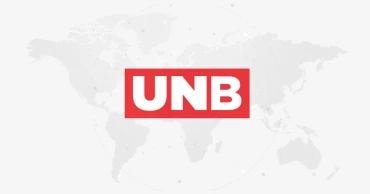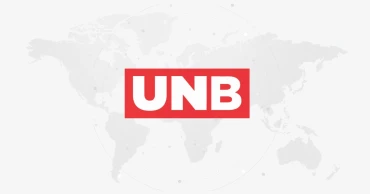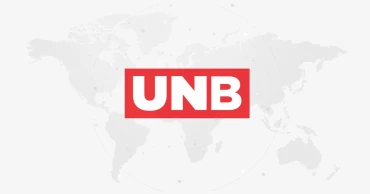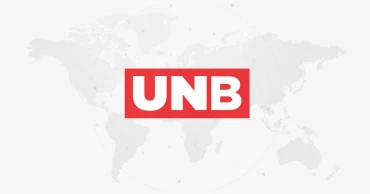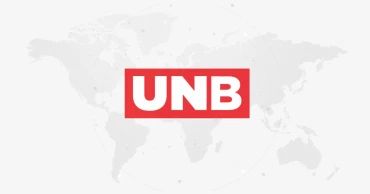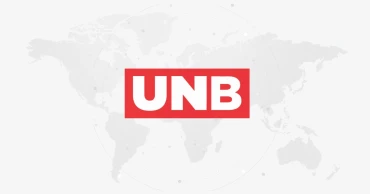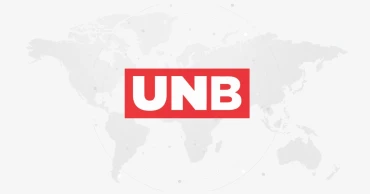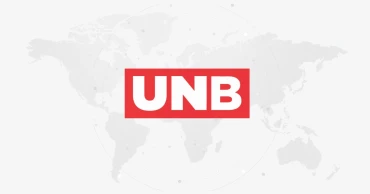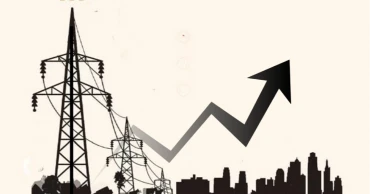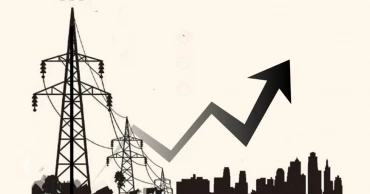power tariff
Power tariff hike from February 1, not March 1
Power tariff will be increased from February 1 instead of March 1, said State Minister for Power, Energy and Mineral Resources Nasrul Hamid on Thursday (February 29, 2024).
Gazette notification will be issued today in regard to the power tariff adjustment, he said while briefing reporters at his ministry.
Earlier he said the new tariff will come into effect from March 1.
He said the power tariff will be hiked between Tk 0.34 and Tk 0.70 per unit for all kinds of consumers depending on their volume of consumption while gas price will go up by Tk 0.75 per unit only for power plants.
Govt raises gas prices for power plants by Tk 0.75 per unit
He also said that a dynamic fuel pricing will be introduced for the consumers from March 1 under which price of petroleum fuel will go up and down in line with international market price.
“Each month fuel price will be declared for the consumers”, he said adding neighbouring India do this every day.
He noted that the steps have been taken to minimise the government losses caused by the increase in dollar rate. “This year the government will incur loss of Tk 43,000 crore due to sale of electricity at lower price,” he said.
This step has been taken as part of the government move to come out of the subsidy now being given to the power sector, said the minister.
According to the BPDB’s Annual Report 2022-23, the fiscal year saw the production of 87,024 million kilowatt hours of electricity at a total cost of TK 98,646 crore.
Its per unit production cost was Tk 11.33, while it was selling electricity at Tk 6.7 per unit — incurring a loss of about Tk 4.63 per unit.
Electricity price to go up from March 1: Nasrul
This imbalance has led to a staggering loss of Tk 47,788 crore for the fiscal year, as the government grapples with purchasing power from private and international sources at significantly higher rates.
With this huge loss, the government has been facing great trouble as it has to purchase electricity worth Tk 82,778 crore from private sector power producers, while it generates electricity worth Tk 13,307 crore from its own generation plants.
The annual report also shows that the BPDB’s average per unit production cost from its own plants is Tk 7.63, while it is Tk 14.62 at the independent power producers or IPPs (private sector), at rental plants Tk 12.53, at public plants Tk 6.85, and imported power from India at Tk 8.77.
The government purchases electricity from the private sector and India in dollars.
Read more: Bangladesh seeks ITFC cooperation to modernise power distribution, transmission system
2 years ago
Govt in dilemma over raising power tariff or floating more bonds to cut losses
The government of Bangladesh is caught up in a dilemma in choosing the right option to reduce the gap between the cost of power production and revenues generated from sales.
“Top policymakers are divided over whether the government should go for increasing the power tariff further or issuing more bonds through the banking system,” said a top official at the state-owned Bangladesh Power Development Board (BPDB).
He said if the government wants to raise the power tariff, either it has to do it before Ramadan or after Ramadan - these are the questions almost every day that are being discussed at the policy level.
They are also analysing the impacts of floating more bonds to reduce the burden of soaring losses on the part of BPDB, he added.
Read: Retail power tariff hiked 5% to Tk0.19 per unit for lifeline consumers, Tk0.36 on average for others
According to official sources, currently, the production of each unit of electricity costs about Tk 12 while it sells at a rate of about Tk 6.7.
It means the government has to bear the brunt of Tk 5.3 per unit, a top BPDB official told UNB.
The BPDB’s Annual Report 2022-23 shows, the BPDB, as a single buyer, generated 87,024 million kilowatt hours of electricity in 2022-23 fiscal at a total cost of TK 98,646.42 crore.
Its per unit production cost was at Tk 11.33 while it was selling electricity at Tk 6.7 per unit incurring a loss of about Tk 4.63 per unit.
The bulk tariff was last raised by 8.06 percent to Tk 6.70 from Tk 6.20 per unit on January 31 with effect from February 2023.
Read more: Over 10,000MW power in 29 projects in the pipeline, despite yawning overcapacity
Against this, its revenues were Tk 50,858.25 crore, incurring a loss of Tk 47,788.17 crore, showed the BPDB Annual Report.
With this huge loss, the government has been in great trouble as it has to purchase electricity worth Tk 82,778.25 from private sector power producers while it generates electricity worth Tk 13,306.62 crore from its own generation plants.
The annual report also shows that the BPDB’s average per unit production cost from its own plants is Tk 7.63, while it is Tk 14.62 at the independent power producers or IPPs (private sector), at rental plants Tk 12.53, at public plants Tk 6.85 and imported power from India at Tk 8.77.
The government purchases electricity from the private sector and India in dollars.
Read more: Power generation capacity increased by almost 20% to cross 30,000MW in 2023
According to official sources, the government's cumulative outstanding bills have now jumped to about $5 billion, of which the backlog amount in the power sector is about $4 billion (about Tk 43,093 crore), and the remaining $1 billion is in the energy sector.
State Minister for Power, Energy and Mineral Resources Nasrul Hamid also admitted the severity of the crisis.
“Actually the crisis is not of local currency. Somehow we can manage it. But the main crisis is the dollar. We’re not getting dollars from Bangladesh Bank as per our needs,” he recently told UNB.
He noted that the power and energy sectors need at least $1 billion a month to meet payment obligations.
Read: Govt to raise retail power tariff this month
In such a situation, the government recently introduced a number of bonds through Bangladesh Bank to facilitate the BPDB to clear some dues.
“Initially, we have floated bonds worth Tk 5000 crore and it may go up to Tk 12,000 crore,” said a BPDB official on condition of anonymity, adding that it will not be enough to cover the losses, although the government is providing subsidies on a regular basis.
“That’s why the government will have to go for raising power tariff further or introducing more bonds,” he said adding, if more bonds are floated, it may squeeze the private sector’s credit from the banking sector.
But a final decision on what they would do still remains pending.
Read more: Power, energy sectors are saddled with $5 billion outstanding payment amid dollar crisis: Sources
2 years ago
Power tariff raised again by 5 percent at retail level, effective from Wednesday
Electricity tariff was raised further in Bangladesh at both retail level with effect from Wednesday (March 1).
The Power Division — through administrative order in a gazette notification — raised the tariff.
“Power tariff was raised by 5 percent”, power secretary Habibur Rahman told UNB.
This has been the third time in a row in two months, the power tariff was raised, average 5 percent in retail level on every occasion.
According to the new order, the retail tariff was raised at different levels of consumers. The tariff was raised for lower-level consumers by an average 5 percent to Tk 4.35 from Tk 4.14 (each kilowatt hour) per unit. Bulk tariff was not raised this time.
Also Read: Power tariff further raised at both bulk and retail levels, effective from tomorrow
Earlier on January 13, the government raised the electricity tariff by 5 percent at the retail level with effect from January 1 and on January 12 raised again by 5 percent with effect from February 1.
On November 21, the bulk power tariff was hiked by 20 percent to Tk 6.20 per kilowatt hour by Bangladesh Energy Regulatory Commission (BERC) with effect from December 1.
The government recently amended the BERC Act empowering the Power Division to raise power, gas and petroleum fuel by administrative power anytime it wants.
Also Read: Retail power tariff hiked 5% to Tk0.19 per unit for lifeline consumers, Tk0.36 on average for others
Applying that amended Act, the new gazette notification was issued to raise the electricity tariff at bulk and retail levels, bypassing the authorities of the energy regulator.
Meanwhile, energy experts believe the tariff enhancement decision came in compliance with the conditions of the International Monetary Fund (IMF) that recently approved $4.5 billion in loan to Bangladesh.
3 years ago
People can no longer bear burden of increased power tariff: BNP
Strongly protesting the fresh hike in power tariffs, BNP Secretary General Mirza Fakhrul Islam Alamgir on Wednesday said people are repeatedly paying the prices of the government's limitless irregularities and plundering in the power sector.
In a statement, he urged the government to revoke its unjustified decision of hiking the power prices, saying people will no longer be able to bear the burden of the increased power tariffs.
“People are already going through ordeals due to the government’s failure, corruption, looting, mismanagement, and wrong policies. Amid such a situation, frequently increasing the prices of power is an anti-people, strange and unjustified decision of the government,” Fakhrul said.
Just 19 days ago, he said the price of power at the retail level was increased by the government.
Also Read: Power tariff further raised at both bulk and retail levels, effective from tomorrow
“The hike in the prices of power further at the retail and wholesale levels just after 19 days is a manifestation of the anti-people character of the government,” he said.
The BNP leader feared that the prices of all essential items will go up further with the fresh hike in power tariffs. “People can no longer bear this burden.”
He said the current government has been frequently increasing the prices of electricity, gas, fuel, edible oil, fertilizers, and other daily necessities as it was not elected by the people. “The government has no regrets about this. Rather it’s telling lies shamelessly in favour of these imprudent moves.”
Fakhrul said the Awami League government has increased electricity prices 11 times in the last 14 years.
He also termed the government’s move as a subtle trick to take the authority of hiking the tariffs of power and fuel from the hands of the Bangladesh Energy Regulatory Commission.
The BNP leader alleged that the government has been taking away money from people’s pockets by raising power tariffs only because of plundering and corruption of the government and its followers. “People have now woken up against the government.”
Fakhrul said their party will hold rallies in all divisional cities on February 4 (Saturday) to mount pressure on the government to accept their 10-point demand and lower the prices of power, gas, and daily essentials.
He called upon people from all walks of life to register their protest against the government’s anti-people decisions by making their programme a success with their spontaneous participation.
The government on Tuesday increased the retail power price by 5% and the bulk price by over 8% just 19 days after it had hiked the retail price on January 12 this year.
END/UNB/
3 years ago
Power tariff further raised at both bulk and retail levels, effective from tomorrow
Electricity tariff was raised in Bangladesh at both retail and bulk levels, with effect from tomorrow (February 1).
The Power Division — through administrative order and in two separate gazette notifications — raised the tariff.
According to the new order, the retail tariff was raised at different levels of consumers. The tariff was raised for lower-level consumers by an average 5 percent to Tk 4.14 per unit (each kilowatt hour) from Tk 3.94 per unit. Bulk tariff was raised by 8.06 percent to Tk 6.70 from Tk 6.20 per unit.
Enhancement in bulk tariff means, the distribution companies will purchase electricity by an increased rate of Tk 0.50 per unit from Bangladesh Power Development Board (BPDB) while enhancement in retail tariff means, consumers will have to pay enhanced rate for using electricity.
Read more: BPDB submits retail power tariff adjustment proposal seeking a 19.44 percent hike
Earlier on January 13, the government raised the electricity tariff by 5 percent at the retail level with effect from January 1.
At that time, the average tariff for all consumers went up by Tk 0.36 to Tk 7.49 from Tk 7.13.
On November 21, the bulk power tariff was hiked by 20 percent to Tk 6.20 per kilowatt hour by Bangladesh Energy Regulatory Commission (BERC) with effect from December 1.
The government recently amended the BERC Act empowering the Power Division to raise power, gas and petroleum fuel by administrative power any time it wants.
Read more: CPD raises question about power tariff enhancement proposal
Applying that amended Act, the new gazette notification was issued on January 30 to raise the electricity tariff at bulk and retail levels, bypassing the authorities of the energy regulator.
Meanwhile, energy experts believe the tariff enhancement decision came in compliance with the conditions of the International Monetary Fund (IMF) that recently approved $4.5 billion in loan to Bangladesh.
3 years ago
BPDB staring at 80% jump in annual losses after gas price hike
The financial loss of the state-owned Bangladesh Power Development Board (BPDB) is likely to cross Tk 54,000 crore in the current fiscal after the hike in the price of gas increased their input cost. In 2021-22 its losses were Tk 29,915 crore.
“We have to count Tk 10,000 crore extra cost to pay the gas bills following the new gas price enhancement,” a top official of the BPDB told UNB.
He said the new cost of gas purchase was already communicated to the Power Division which had already raised the issue at a high-level meeting at the Prime Minister’s Office (PMO) seeking further instruction.
The government on January 18 raised the retail gas prices for public, private and captive power plants and also for industries and commercial users with effect from February 1.
Also Read: Saudi firm, BPDB sign deal to set up 1000MW solar power plant in Bangladesh
As per the new government announcement, the gas prices have been increased by almost three times for public and private power plants while almost double for captive power plants and industries, and significantly hiked for commercial users.
However, prices for household consumers, CNG-run for motor vehicles and tea estates were kept unchanged.
The Energy and Mineral Resources Division set the prices through a gazette notification issued on Wednesday applying the new amendment to the Bangladesh Energy Regulatory Commission (BERC) Act, which empowered the government to set all kinds of energy prices bypassing the regulator’s jurisdictions at any time.
As per the gazette notification, the public and private power plants including the IPP and rental power plants will pay gas price at Tk 14 per unit (each cubic metre) instead of previous price of Tk 5.02. The rise is 179 percent.
Read More: The Tk 700 crore per month hole in the deal with Adani Power
The captive power plants, small power plants and commercial power plants will pay Tk 30 per unit instead of the previous price of Tk 16 which is an 88 percent rise.
It means after the current enhancement in gas price, the loss in the space of one fiscal will go up by over Tk 24,000 crore, said the sources at the BPDB - an almost 80 percent jump.
According to BPDB’s own latest estimates, the financial loss was supposed to cross Tk 48,000 crore in the 2022-23 fiscal from Tk 29,915 crore in the fiscal year 2021-22. But after the hike in bulk power tariff, the loss was calculated to come down by about Tk 4000 to Tk 44,000 crore.
“But now the loss will go up by Tk 10,000 crore due to the gas price hike effective from February 1,” said the official referring to their latest calculation.
Read More: Saudi firm, BPDB sign deal to set up 1000MW solar power plant in Bangladesh
The directorate of finance of BPDB prepared this calculation on the basis of an audited report, official sources said.
On November 21, the bulk power tariff was raised by about 19.92 percent – to Tk 6.20 per kilowatt hour (each unit) from the previous Tk 5.17 – with effect from December 2022.
As per the calculation, the loss has shot up excessively mainly for the two reasons — primary fuel price escalation and devaluation of the local currency.
"Among the two, the devaluation of local currency emerged as the major reason," a top official of the BPDB told UNB.
Read More: BPDB’s financial loss set to increase by over two-thirds to Tk 48,000cr
He informed that the BPDB was going to incur a loss of about Tk 10,000 crore solely due to the high rate of dollar. Earlier, the US dollar exchange rate was calculated at Tk 85 which is now at Tk 107 which means the cost increased by Tk 22 per dollar.
The BPDB has to pay about $9 billion annually to buy electricity from private sector plants, to pay capacity charges and also to import other materials from abroad for its own purposes.
The BPDB has a power purchase agreement with a huge number of private power generation companies to buy their electricity.
Available statistics reveal, currently, the country’s installed power generation capacity is over 25,500 MW and more than 50 percent of electricity is generated by the private sector through independent power producers, rental and quick rental power plants.
Read More: BPDB submits retail power tariff adjustment proposal seeking a 19.44 percent hike
Import of electricity from India is also counted as private sector generation.
The private sector operators mainly use furnace oil, natural gas and diesel. Of these, 4,700 MW is generated by using furnace oil.
3 years ago
Hike in retail power tariff is less than in developed countries: Info Minister
The electricity tariff in Bangladesh hiked by 5 percent at the retail level is still less than that of many developed countries, said Information Minister Hasan Mahmud on Friday.
A slight increase in electricity tariff is proposed to adjust the subsidy borne by the government, he told the reporters at Rajshahi Circuit House.
“Our government is counting thousands of crores in subsidies for the power sector so that the people do not suffer and can get electricity at a cheap price.”
Rising fuel prices in Europe and the UK are driving electricity rationing, driving up prices. But in Bangladesh, the price has not been increased in that way as the power sector is still dependent on fossil fuels, he said.
Also Read: BNP paying for "imprudent" decisions: Hasan Mahmud
The government has raised the electricity tariff by 5 percent at the retail level that will be effective from January 1.
Now the average tariff for all consumers will go up by Tk0.36 to Tk7.49 from Tk7.13, the Power Division said in a media statement Thursday.
Regarding the prime minister’s rally in Rajshahi on January 29, Hasan said the rally will be in a field, but the whole city will turn into a rally that day. There will be millions of people joining the rally.
“We believe in the power of the people. And they (BNP) believe in conspiracy and the power of arms. So, all evil forces should be eliminated by the power of the people and that should be shown in the rally of Rajshahi on January 29.”
Marking the PM’s rally here, Hasan Mahmud arrived in Rajshahi this morning for an exchange of views with local leaders and a field visit.
3 years ago
Retail power tariff hiked 5% to Tk0.19 per unit for lifeline consumers, Tk0.36 on average for others
The government has raised the electricity tariff by 5 percent at the retail level.
Now the average tariff for all consumers will go up by Tk0.36 to Tk7.49 from Tk7.13, the Power Division said in a media statement Thursday.
The tariff for lifeline consumers, who use up to 50 units (kwh) a month, was raised by Tk0.19 to Tk3.94 per unit from Tk3.75.
The new tariff will be effective from January 1.
The monthly demand charge was also raised for different types of consumers.
The tariff was raised through an administrative order, issued by a gazette notification in the evening.
The decision to raise the power tariff at the retail level was taken under the new amendment to the BERC Act, which allowed the government to take any decision in this regard bypassing the regulator's jurisdiction.
However, the Power Division's 19-page gazette notification did not say anything about the average hike in tariff or its increase in percentage.
Read more: Govt to raise retail power tariff this month
State Minister for Power, Energy and Mineral Resources Nasrul Hamid clarified it saying the electricity tariff was raised by Tk0.19 per unit at the retail level, 5 percent up from the existing one.
Nasrul also said the tariff will be adjusted every month from now on.
"We had to raise the tariff to cover about 20 percent hike in bulk level while the government subsidy was also taken into consideration," he told UNB. "In this fiscal year, the government will have to provide Tk28,000 crore as a subsidy, which was Tk17,000 crore in the last fiscal year."
Justifying the 5 percent hike in retail tariff, the state minister said that the government had to go for upward tariff adjustment because of the growing energy prices globally. "The coal price has gone up to $250 per metric tonne, which was only $90 per MT last year."
Earlier, BERC raised the bulk power tariff by about 19.92 percent on November 21 with effect from December 1.
After that, six power distribution entities submitted their respective proposals to BERC seeking a similar, 19.44 percent, hike in retail power tariff at the consumer level.
But within a week, the cabinet on November 28 approved an amendment to the BERC Ordinance 2022, allowing the government to set fuel tariffs on its own under special circumstances without having to wait for the commission's public hearing and decision.
Read more: CPD raises question about power tariff enhancement proposal
Earlier, during a public hearing, the technical evaluation committee (TEC) of BERC recommended raising the weighted average tariff of electricity by 15.43 percent at the retail level against the demand of the distribution companies for hiking it by about 20 percent.
The committee suggested setting the weighted average retail tariff at Tk8.23 against the existing Tk7.13 per unit (each kilowatt hour) with a hike of Tk1.10 per unit.
Consumers Association of Bangladesh Vice-President Professor M Shamsul Alam called the power tariff hike by the government's raising with an administrative order a "bad example," which will "encourage corruption and irregularities in the power sector."
This move will be detrimental to ensuring accountability and transparency which is being established by BERC's public hearing, he said.
3 years ago
Govt to raise retail power tariff this month
The government has decided to raise the power tariff at the retail level this month bypassing the recommendation of BERC.
Reliable sources said the price is likely to be raised by an average 5 percent.
A gazette will be issued about the electricity hike soon, said the sources, speaking on condition they can’t be named.
Read more: Public Hearing: Evaluation committee for 15.43 pc power tariff hike at retail level
Meanwhile, State Minister for Power, Energy and Mineral Resources Nasrul Hamid on Thursday said that the electricity tariff will be raised by Tk 0.19 per unit at retail level.
The new tariff will come into effect from January 1, he told reporters.
Earlier in December, Nasrul said that if the Bangladesh Energy Regulatory Commission (BERC) delays to decide on retail power hike proposals, the Power Division will make its own decision.
The BERC raised about 19.92% bulk power tariff on November 21 with effect from December 1.
Subsequently, six power distribution entities submitted their respective proposals to the BERC seeking a similar 19.44% hike in retail power tariff at consumer level.
Read more: CPD raises question about power tariff enhancement proposal
But within a week, the Cabinet on November 28 approved an amendment to the BERC Ordinance 2022 to empower the government to set fuel tariff on its own under special circumstances without waiting for the commission's public hearing and decision.
Earlier, the technical evaluation committee (TEC) of BERC recommended raising the weighted average tariff of electricity by 15.43 percent at the retail level against the demand of the distribution companies for hiking it by about 20 percent.
The committee suggested setting the weighted average retail tariff at Tk8.23 against the existing Tk7.13 per unit (each kilowatt hour) with a hike of Tk 1.10 per unit.
3 years ago
Decision on retail power tariff likely by January 30
The decision on retail power tariff is likely to be announced by January 30.
“We want to announce the commission’s decision by January 30,” said Abdul Jalil, chairman of the Bangladesh Energy Regulatory Commission (BERC), while making his concluding remarks at the end of the public hearing on the proposals of the distribution entities to raise power tariff at the retail level.
Other members of the commission were present on the occasion.
The four-year tenure of the chairman and some other members of the regulatory body is scheduled to expire on January 30.
Read More: Public Hearing: Evaluation committee for 15.43 pc power tariff hike at retail level
Earlier, the technical evaluation committee (TEC) of BERC recommended raising the weighted average tariff of electricity by 15.43 percent at the retail level against the demand of the distribution companies for hiking it by about 20 percent.
The recommendation of the evaluation committee was placed at the public hearing today that began in the city’s BIAM Auditorium at 10 am.
The committee suggested setting the weighted average retail tariff at Tk8.23 against the existing Tk7.13 per unit (each kilowatt hour) with a hike of Tk 1.10 per unit.
However, the five-member commission, headed by its chairman Abdul Jalil, will make the final decision within the next 60 days as per the latest amendment to the BERC Act 2010.
Read More: Public hearing on retail power tariff hike proposals begins Sunday
All the six state-owned power distribution bodies - Bangladesh Power Development Board (BPDB), Bangladesh Rural Electrification Board (BREB), Dhaka Power Distribution Company Limited (DPDC), Dhaka Electric Supply Company Limited (Desco), Northern Electricity Supply Company PLS (Nesco), and West Zone Power Distribution Company Limited (WZPDCL) - submitted their proposals following BERC’s decision on November 23 last year to hike the bulk power tariff by 19.92 percent with effect from December 1.
The lone state-owned transmission entity Power Grid Company of Bangladesh (PGCB) also placed a separate proposal for raising wheeling charges.
The state-owned BPDB first placed its proposal on November 23, seeking a 19.44 percent hike in retail tariff. After that, all other distribution entities also placed almost the same proposal.
Read More: CPD raises question about power tariff enhancement proposal
Participating in the public hearing, all the consumer rights groups, including the Consumers Association of Bangladesh (CAB) strongly opposed the proposals of the distribution and transmission entities.
CAB Vice-President ASM Shamsul Alam said the initiative to increase the electricity tariff at the retail level is against the public interest.
“Instead of containing corruption, irregularities, and system loss in the power sector, the government is trying to find an easy solution through raising tariff,” he said.
Read More: BERC now to consult with govt before any move on retail power tariff hike proposals
“If the electricity tariff is raised even further, it will further push up inflation in 2023, which will only intensify public sufferings and the common people will feel the pinch as they will have to pay the ultimate price,” he added.
As per the latest number, the financial loss of the BPDB, the principal organisation in the power sector and also the single buyer of electricity from private sector power plants, is likely to increase by Tk18,094 crore in one year.
According to the BPDB’s own latest estimates, the financial loss will cross Tk48,000 crore in the 2022-23 fiscal from Tk29,915 crore in FY22, an increase of almost 67 percent.
Read More: Raising retail power tariff: 3 more distribution companies submit proposals
Sources said the BPDB’s revenue deficit has further increased due to its purchase of electricity at a higher price and sale at a lower price, the hike in petroleum fuel prices and also the increased exchange rate of the US dollar.
Officials said the recent 19.92 percent hike in the bulk tariff may help the BPDB reduce its loss by only Tk5,000 crore while a huge revenue deficit will remain a big burden.
However, the bulk power tariff hike put pressure on power distribution companies to submit their retail tariff hike proposal to BERC to cover their own revenue gaps.
Read More: BPDB submits retail power tariff adjustment proposal seeking a 19.44 percent hike
3 years ago
